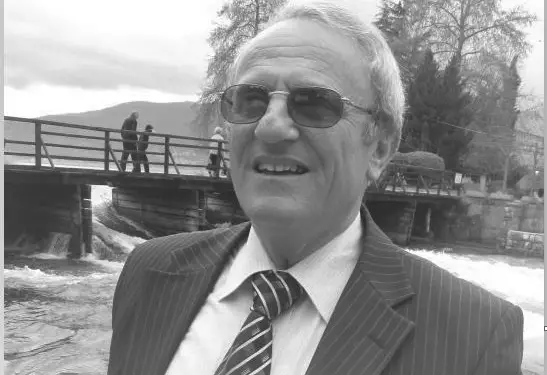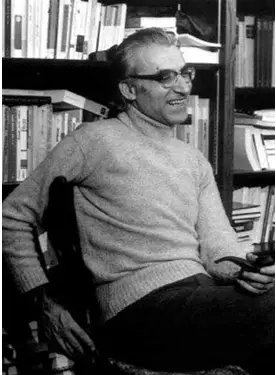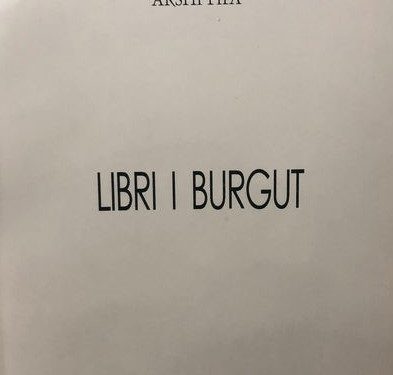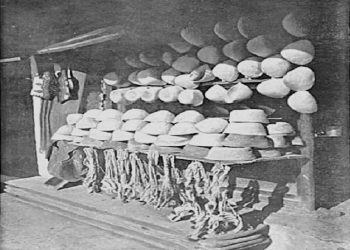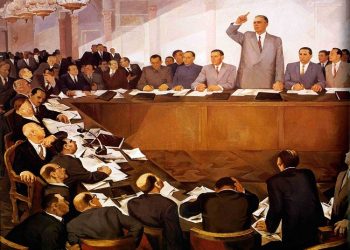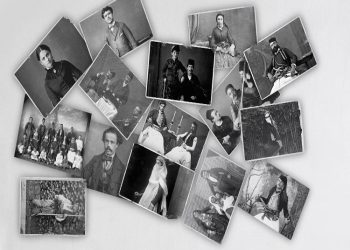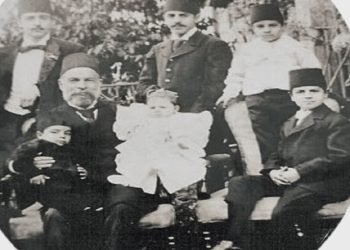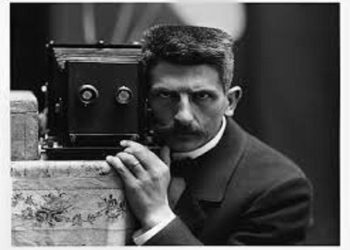From Shpendi Topollaj
The first part
Memorie.al / When the symbols of communism, after half a century of struggle, collapsed, there was such a loud noise that we woke up from our deep sleep. We opened our eyes, but not all of us believed what had happened: often, as a person sees some dreams that he takes for truth, he also sees some truths that he takes for dreams. Moreover, there were not a few who opposed this historic upheaval, with demonstrations and even threats. To overcome this situation, patience and wisdom were needed. We were brothers. As such, we had an intellectual, moral and spiritual duty to denounce the demagoguery of communism and the monstrous crimes of the red inquisition. Of course, the most reliable were those who had languished and suffered in prisons and exiles. Silence would really be a great sin of theirs…!
CRY FROM PRISON
– About prison literature –
They, as the former prisoner of conscience, Father Zef Pllumi, says, had been waiting to show me. Many books began to be published, mainly by the persecuted of yesterday. The chilling truths depicted in their pages were giving way to the glorifying literature of socialist realism, the literature that had dulled the minds of the masses. Under these conditions, I felt a civic duty; to organize together with my friends, their presentation. By exposing communist crimes, we were fulfilling our duty to democracy. I decided to summarize all my reviews that I could save in a separate book. Of course, the road to democracy is long and difficult; it still requires honest efforts from everyone. The important thing is that despite all the obstacles, our society moves forward. Back, there is no going back.
This was the introduction to my first book of literary criticism; “Flames of the Word”, in 1997, published by the “Rilindja” Publishing Company, for which the late Prof. dr. Gjergj Zheji, expressed that; “…the book with the writings inside is a kind of novelty, because the author seems to have taken it upon himself to show us the values, qualities and features of many works written in difficult life circumstances – in prisons, exiles, etc., by people because of their political beliefs, they had fallen under the blows of the class war of monism, which brought so much harm to our country, not only in the economic and social side, but also in the artistic one”.
And he continues: “This selection reveals once again the democratic conviction of the author, who tries to point out in almost all his critical notes, the democratic spirit of the people, their unrelenting struggle, to realize the solution of the problem great national, in the dimensions and democratic means of our time”. So, this authority of our letters emphasized the solution of our national problem, since most of those who were barbarically punished had this as their main theme. And this was necessarily related to the freedom of thought, expression, belief, movement, organization, or raising one’s voice for the improvement of the economic conditions of the people. All these together were summed up in what is called Freedom and which is the most sacred thing for man. Many of them, mostly intellectuals, seeking precisely Freedom, took away what little they had.
Some paid with their lives, others were able to flee their homeland, and anyone who had the courage to open their mouths or even though someone had tribal connections with them, suffered quite badly; suffering from exile, for years and years. Discriminated, despised, shamed, overworked by the most slavish women, that is, in the midst of extreme misery, whole families spent their lives. Little children grew up and became men amidst this misery, without the slightest fault. They didn’t let them get an education and progress, they cut their dreams brutally, calling them accused as; “puppies of the enemy”. Many died of starvation and lack of health care. Always followed by the watchful eye of the ignorant and heartless policeman. All this also served as a warning to others, who, willy-nilly, turned into a blind hypocritical crowd.
Demagoguery, lies, propaganda and megalomania would come to an end one day. But this is where some of those emerged, for whom the Nobel laureate, Aleksandër Sollzhenjicin, in the “Gulak Archipelago”, says: “But those who had put the handcuffs on our hands, now quietly raised their hands and said: We should not…! The past should not be teased…! Whoever mentions the old… one of his eyes should be put out”! But the proverb ends: “He who forgets… both must be taken out”! I referred you to my first book, with literary criticism, but after more than two decades, there have been twenty-six such books, which include many other writings, about books written by those who experienced the horrors of communist prisons and that the many I held them during the organization I did, for their promotion, mainly at the “Aleksandër Moisiu” theater in Durrës and other cities.
If we add here the numerous stories and novellas (not including novels such as: “Tears of the Lily”, “Puskatimi”, “Allamanët”, “Lion of the Cage”, “Mashturesi”, “The Disappointment of the Partisan of Gramoz”, “I I was in Mat`hausen”, “Pajtimi”, etc.), which I have written and published in books and newspapers, with stories of prisons, where the courage and bravery of famous prisoners stand out, to preserve their convictions and dignity , I had the idea that after selecting some of them, I would publish them together. And all this modest work, is not only an obligation to what seemed to us, but also an honor, for all those who experienced the brutality of those prisons and a respect, for those who put on paper, the unparalleled physical torture and spiritual.
But I believe that it is also a reminder to reward them according to the law, for everything they removed or to give them the deserved places in our administration. That it is completely unjustified; when you see that they are still either ignored by the democrats, or fired by the socialists. In order to prove the manly character of Albanians, also in prisons, I have included here the story “Carnation”, which rises to greatness, the figure of the prisoner in the Nazi concentration camps, during the Second World War. Oh, if only our cinematography could reflect their heroic resistance…?!
THE CURSE OF A WOUNDED SOUL
– “Prison Book” by Professor Arshi Pipa –
In his memoirs about Dante Alighieri, Giovanni Boccaccio, to show how reliable he became in Verona, writes: “…as soon as he passed in front of a door, where many women were sitting, one of them said to the other women, with low voice, but not so that it was not well heard by him and those who were with him: look at him who goes to hell, returns when he likes and brings here new heights, from those who are down there”.
And yet, if for a moment those confabulating whims of the brain would rule us, we would ignore both the centuries and the genius talent of the author of the “Divine Comedy” and turn with the eyes of the mind to Themis, the goddess of Justice, to judge who would have the privilege of calling his book “Hell”, without exaggeration, we would say that between Dante and Arshi Pipa, she would prefer the latter, since: Dante only imagined it, while Arshiu experienced the real hell. In Dante’s hell, the sinners entered, that is, those who deserved it, while in the Albanian hell, the innocent collided, and whose only crime was that they loved their country without Slavic-communist lines.
So much so that the circles of hell, the nine chapters of this book (which, although separate poems are organically connected to each other, as part of a whole, that we can safely call it a novel in verse), amaze you with the unparalleled strength of the author, who writes not in the middle of the comfort of warm studios full of dizzying light, with his arms stretched out, but from the inhuman horrors of dark medieval cells full of humidity, where the heavy steps of the guards, the creaking of the locks, terrorize every hour , the smell of sweat and dirt, the bites of lice and the shrill screams of comrades being tortured. But the poet’s muse is greedy. “Inspiration – says Baudelaire – always comes when a person wants it, but it is not always lost when he wants it”!
Precisely for this reason, Arshi Pipa, in secret, writes on pieces of cigarette paper, poems to which he has assigned the task of spiritualizing the bitter facts, which remain in his mind; “Nemesis” (Nemesida – the goddess of Revenge), that with a special suggestive power, conquers you and makes you think. Nowhere else, except behind the thick and rusty irons of the prison, can one write such a Hamletian curse, with which the author has been dealing, since October 1946 and until 1948. He himself feels this possibility, so he is aware that he is testifying to history, with that monocolon verse of his, an exception to other poems, he affirms: “Between pits of prisons, I wrote for stones and mud; His chest is pressed and it vibrates high/ when he comes out of the depths of the kanga”.
More than anyone, the intellectual, more than any intellectual, the artist, and more than any artist, maybe the poet is the one who loves freedom to the smallest detail. However: “Those who until yesterday wore halters / tinsmiths, schoolboys / we are half bankrupt and today the ministers / are saying we are patriots”! Precisely, those raised to the highest heights of power, who, declaring themselves to be the servants of the people, in reality, transform the people into their servants, take care first to give their most prominent sons , from a bullet in the head, put them in handcuffs or deport them. The Machiavellian goal is clear: to curb free thought and throw the macabre dance to the sounds of the communist “Internationale”.
And sparing nothing to convince the disobedient, they harmed Albania much more than any enemy: “They pull out our nails with sledgehammers, salt between the wounds/ they beat us and push us into the ditch with their fists, and water when we beg / they laugh and spit on us./ They smoke our cells, they put electricity between our ears and mouths/ even between our shames…!/ Your laugh and they put out cigarettes in our eyes for fun”. Then, in turn. With a completely believable fluidity, the poet lines up the hangings by the shoulders, the throwing from the window to the burials without stones, without a veil, where women and babies are beaten and where they are not allowed to come to cry, to soften the longing. Seen like this, Arshi Pipa’s poetry is an act – accusation, if not legal, at least moral, from which one should tremble and, one should never forget, that what is written is the black page of a dictatorship confirmed with blood, bones and human honor.
That it is not an accusation, of a single man, but of thousands and hundreds of thousands of innocents, who, torture did not break, but on the contrary, the fire of the enemy, worse ignited their hatred, and who assume the proportions of mythological heroes, where from the heavy chests, the chanting came out: “Tremble tyrants on the thrones of your executioners/ The night is black, but it is only one night/ The sun of freedom, let it strike”. The poet’s heart by nature does not love war. She is inclined to goodness and love; she is stunned and amazed by beauty. And this quality of his sensitive heart, Arshi Pipa manifests even in prison, when he evokes his hometown, the inimitable Shkodra, the mulberry of the yard, that he addresses as if he were a human: “Where are you? I sang to you as a child from early on/ and I don’t miss you from the bottom of my heart forever/ But tonight, manda, only for the rest of you/ I’m tired of missing you”!
In the prison – the fortress of Gjirokastra, he finds time to praise the feats of popular heroes; Shemo the Thief and Kupe Danja. And there in the solitude of the prison of Burrell, with a heartbeat, he writes an elegy for the faithful cat, who dies after his master from grief, for the mouse that when they were small, burning with kerosene, cheering and now accepting the only guilt of life, he prays: Forgive me, Lord / I am suffering today. And he doesn’t forget to sing to his mother, even the brush that he once brought to his mother. Therefore, it would be illogical, completely unacceptable and not at all human if the verses that follow are misinterpreted: “Take the heart from the chest and put it in the grave/ a stone when carved for the order: Revenge! / That when the soul is blind / the heart becomes deaf”!
When the poet says that there was a river of love, he has the right to have gathered a sea of hatred: “Shut up, oh river, blow the sky/ O tongue, you live a sword/ As a poet today, it is your name/ And every word is a mandate” . With marked civic courage, the poet who with his intuition has understood the evil in the gene, engraves on the obelisk of his work these words valid for every people and every time: “O civilized nation/ in your words/ let to be written forever/ in communist Dutch/ in criminal Dutch you say:/ two words and one meaning”.
Arshi Pipa, being a philosopher at the same time, knows very well that evil does not come from the mouth, that is, from cursing. In addition, I definitely know that once Cervantes, as if jokingly, said a great truth that: “For every pig, there will come its own Saint Martin’s Day”. Precisely for this, he at the end of the curse that he would have been worthy of, for those vibrating and excruciating declamations of Alexander Moisiu, is figurative when he writes: “Shueji, but not with death that the suffering is extinguished/ and the soul gives peace/ Strive, hey, I saw how they tortured us/ let me live for the sake of gasp”. And further… “Let their pride walk around the world/ and there with orders/ let the teacher tell the students:/ look at the beast, man”.
In reality, the curse is a curse for communism and not at all for individuals, as it is a desire for humanity and not for oneself, which is clarified even later in the “Ballad of eternity”, where he says: “O God, have mercy / for all of them are begging for forgiveness”! However, Albanian satanic sinners are more evil than those negative characters of Peter Weiss in “Investigation”, like Dr. Kapezius who, accused of using the deadly gas “Cyclone B”, said: “Apparently the witness is a victim of a fraud”.
And if that’s the case, Arshi Pipa’s poem conveys a human message to the guilty of their crimes: “Gentlemen! Since you, during your long winter night, never wanted to tell us, we are repeating it to you; just know that this is not weakness, but strength and nobility: “Let no one forget that you are human:/ you don’t have to live like an adder/ but to pursue virtue, you know”. (Dante Alighieri)
TRIBUTE TO THOSE WHO DARE TO FACE EVIL
– About the book “new punishment”, by Fatos Lubonja-
Books like “new punishment”, authored by Fatos Lubonja, have incalculable historical and artistic value. That there is no greater art than the faithful reflection of the truth, the truth that appears objectively and that which is subjectively felt by our mind and soul. We never managed to give a correct answer, that; how the hell is we humans cooked?! How is it possible to find among us, at the same time, in the same place, under the same circumstances, and why not, and with the same blood, people so good and, so evil, so smart and, so idiots, so cultured, so ignorant, so humane, so monsters, so loyal, so spies, so modest, so boastful, so righteous, so deceitful, so brave, so cowardly, so forward-looking, so short-sighted, so honest, so hypocritical, so tolerant, so vengeful, so devoted, so careerist?!
He browses “Re-conviction” and a great doubt torments him; do we Albanians have these extremes, more pronounced, more visible and more tangible than any other people?! Why not; was this cause, that we have suffered so much? Maybe (Oh God…!), for the sake of this, we will suffer in the future too?! Continuously and continuously, to infinity, as you have already ascertained, that it is very difficult for us to find between two paths, a middle one: either we love you stupidly, or we hate you stupidly. Remember the “unbreakable” friendships with Yugoslavia, the Soviet Union, or China, the love for their leaders and then all of a sudden, the hatred to death of these enemies of Albania, this policy, a reflex of the entire black and white psychology of this people, from which he was lost.
It’s a shame to say it, but not infrequently, the Albanian has been hurt by the Albanian. More than ever before, this resembled, even with extremely tragic and painful proportions, in the “enlightened” era of despotic Enverian socialism, when supposedly with Leninist-Stalinist principles, it was exploited for the interests and goals of the dictatorship, this shortcoming of ours. Staying on the throne for such a long time of a Byzantine cost Albania a lot: the man became a fanatic, blind and obedient animal, it seemed that Bertohl Breht also took the theme “March of the Calves” from us. when he wrote: “And the calves behind the drum/ they throw the cap/ The skin for the drum/ they give it themselves”!
The author Fatos Lubonja has set the events in this environment. Even where they flourish more than anywhere else, in prison, that is, in that place where the characters throw away every cover. Referring to the eyewitnesses, who are still alive today (since it is about events after the 75s). Being present himself, in all the scenes he deals with and relying on documents extracted from the court files, for the truths he describes, he has no reason to ask anyone for forgiveness, with the exception, as he says himself, of; “To those co-sufferers mentioned, who remember the events described in the book with worry…”! Fatos Lubonja doesn’t call for fantasy, his memory is enough. He reproduces what he experienced himself. He doesn’t even try to give opinions. They are drawn by the reader himself.
That if someone was; perjury, slanderer or false witness, if the operative of the Security, the investigator, the prosecutor or the judge, were intriguers, servile and cruel, it is not the writer’s fault. We are not in Kafka’s “Process”. Fatos Lubonja, would have made an unforgivable mistake, if he would have protected them, by not revealing their names, by leaving them anonymous, or by softening and justifying their attitudes towards the defendants, or the convicts. As such, this book would have no value, just as we would only have words, if it did not give us the names of those who suffered, stayed or were shot. In Albania, citizens were punished as if they did nothing wrong, not only when they were wrong, but they ate with the greatest ease, 10 – 20 – 30 years in prison even when they showed a single thought against, or even when they were suspected as such.
By putting on paper those crimes, which were committed by the dictatorship in Albania, the one who writes, materially has no benefit, while morally, it shows that he is a man of pure democratic ideals, that he thus fulfills his civic duty, to show to the generations where we were, to tell them where we shouldn’t pass, but also to raise a memorial, to the brave who dared to take out the sword of free speech, of advanced thought, thus proving irrefutably, that they were not characters who wore feats as they wished, but real heroes, who sacrificed their youth, often even their lives, at a time when many others cheered, cheered, applauded or became the butcher of the dictatorship. By testifying to history like this, Lubonja does an invaluable service to the country, because Patrick Henry used to say; “I don’t know any other way of judging the future, except based on the past”.
Albania was the country that will pay dearly for wisdom, culture and independence of thought. Nothing was gained from them, only lost. This is how the homeland itself was lost. You thought that the country needed them and you didn’t even think that one alone was enough to take you to a deep village, two to a cell and all three together to the grave. And all this, from the permanent, and apparently, incurable disease of the rulers who, as Zvajgu says, “Prefer to keep terribly smart, terribly capable people away from them, they prefer to leave these people in the shadows, when they look what forces are hidden in them”. Why has it always been like this, that’s why Sen Zhysti wrote that: “All the arts have given wonderful fruits, only the art of ruling that at the top of the time creates monsters”. Memorie.al
The next issue follows





